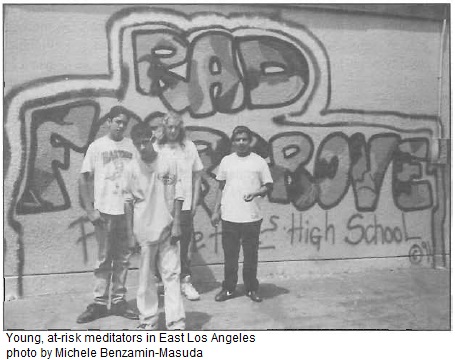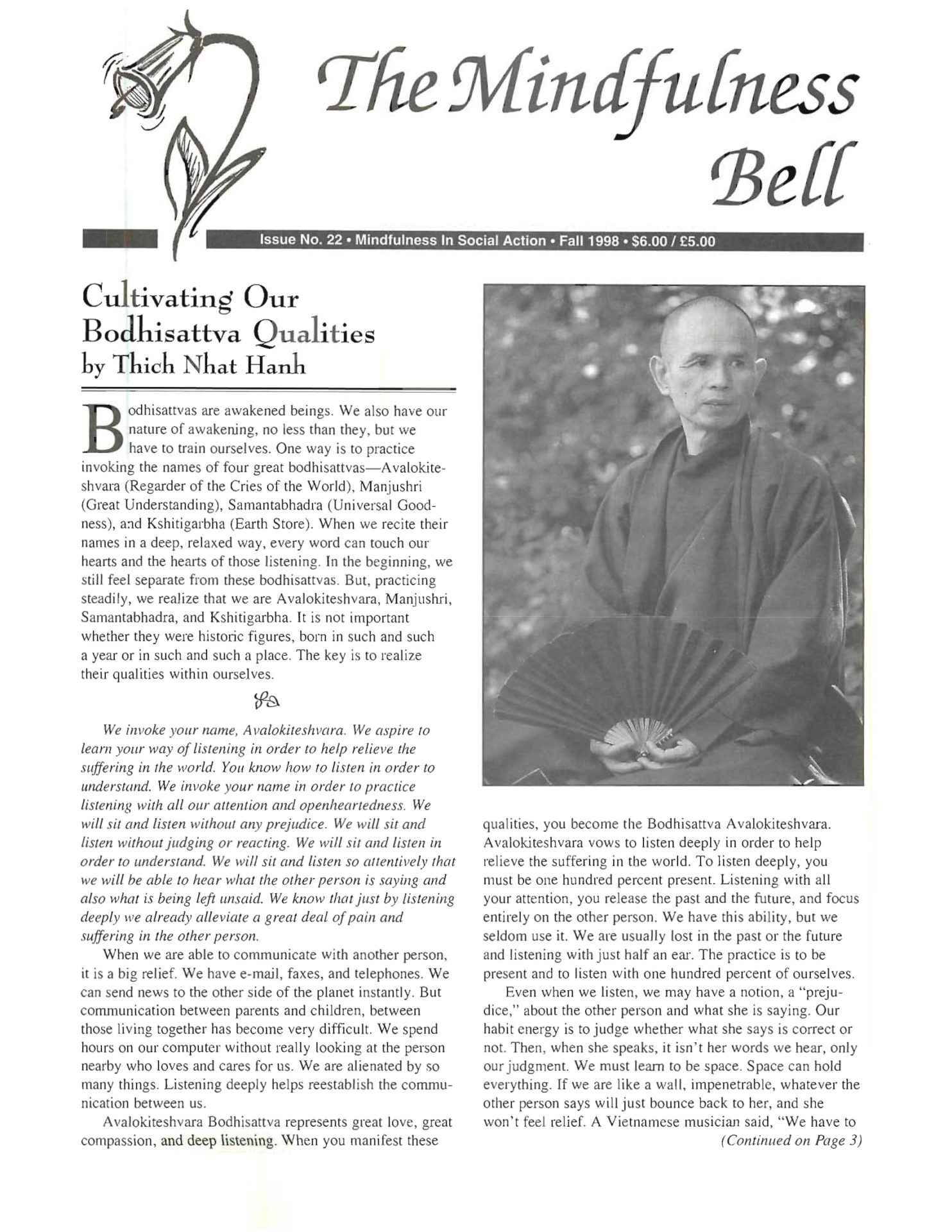By Michele Benzamin-Masuda
It was another weekly visit to Central Juvenile Hall in downtown Los Angeles. Mr. Russell was showing us the Special Lock Down Unit. He opened a door and I walked into one of the solitary confinement rooms. A solid door with a peephole closed behind me. A camera sat behind a protective screen above the door. In the back of the room was a tightly-screened, ban’ed window. I stood for a moment, barely able to breathe. A sadness came over me that the staff member picked up on.
By Michele Benzamin-Masuda
It was another weekly visit to Central Juvenile Hall in downtown Los Angeles. Mr. Russell was showing us the Special Lock Down Unit. He opened a door and I walked into one of the solitary confinement rooms. A solid door with a peephole closed behind me. A camera sat behind a protective screen above the door. In the back of the room was a tightly-screened, ban'ed window. I stood for a moment, barely able to breathe. A sadness came over me that the staff member picked up on. "It is prison," he said. In silence I wondered how I, let alone a child, would feel locked in this room. We moved on to the monitor room, where screens showed two similar rooms occupied by small bodies wrapped up completely in sheets. They lay motionless the whole time we were there.
This unit holds the long-term residents kids too violent or suicidal to be with others, Young, at-risk meditators in East Los Angeles older, high-risk offenders awaiting sentencing, and those under the Witness Protection Program. As the tour ended, Mr. Russell expressed hope that we could start a meditation project in the unit. Many members of our Ordinary Dharma Sangha now teach meditation at Central Juvenile Hall through our "Jizo Project." With other Buddhist organizations, such as International Buddhist Meditation Center and Zen Center of LA, we work with the older high-risk offenders incarcerated for violent Climes, the girls' unit, the younger boys' unit, and occasionally, the special unit devoted to youth with misdemeanor offenses.

We have a special relationship with Harvier Stauring, the Catholic Lay Chaplain in the prison. Harvier supports our work and offers his church space to our Days of Mindfulness, peace programs, and lectures. The church is in an enclosed area in the middle of the prison-a peaceful setting for mindfulness practice. We share common goals of helping the kids be in this place, giving them choices for not returning, and especially, coping with their home life.
I am deeply moved every time I visit this facility. I have worked with a wide range of kids here, but my choice and circumstances have put me in the younger boys' unit. Mr. Russell refers to this unit as the test for all programs. "These kids need meditation the most!" he says.
The youngest boy I've worked with was eight years old- a very hyperactive, talkative, tiny boy with wide eyes and furrowed brow. He needed of a lot of attention and was afraid to close his eyes during the meditation. The boy seemed so stressed for his age. I stayed with him and tried various techniques to teach him to relax. He eventually calmed down. I later learned that the day before my visit, this boy was put in solitary confinement because of the overflow in his unit, and attempted to take his life. His short life has included gangs, malnutrition, drugs, and stealing.
The general rule is not to ask the kids about their crimes. I don't need to know how they got here. When I look at them, I see children wanting desperately to be children, to be guided, make mistakes, to grow and learn, and most of all, be happy. What grounds me is to see the young boy in all of them, to talk to the part of them that desires to be a kid, do kid things, and hold kid dreams. Most of them worry about court, their families, and when they'll get out.
They all need a good night's sleep, so I teach them relaxation and lying-down meditation. We also talk about anger. They get pepper-sprayed a lot in this unit because of their inability to control themselves. I teach them to stop and breathe deeply, count to ten, and see that to act out anger and get pepper-sprayed is not worth it.
A lot of the kids are in for drug use. I show them a way to get naturally high through breath, yoga, and chanting. Many miss their families, so I teach them how to visit their loved ones through a guided lovingkindness meditation they can do later on their own. Many kids are Christian, so I refer to it as a form of prayer. We discuss the Five Mindfulness Trainings, especially right speech. There are many benefits to speaking kindly or practicing silence and listening. Much of the fighting with each other and the trouble with staff comes from unskillful speech.
A visit from someone who cares can be the thread that saves a young person's life. Understanding this is what keeps me fresh and feeling undefeated by the system. Often I get only one opportunity to work with these boys, on occasion three or four times. Then, they are gone. Juvenile Halls are where kids wait for a sentence or placement. They do not serve time here, though some older ones are here a long time, sometimes years.
When I asked these young boys what are the benefits of meditation, they offered these gems. It helps you relax, focus, open your mind, pray, see your loved ones, go home, get a good night's sleep, deal with anger and sadness. And one beauty of an 11-year-old boy looked at me quite seriously and said, "It helps you get in touch with your feminine side."
I am now setting up Meditation and Peace Education programs with some local community-based organizations for probation kids and kids-at-risk during the critical afterschool hours. Our youth play an integral part in the future of this planet. It is our responsibility to give them the tools to live peaceably.
Michele Benzamin-Masuda, True Treasure, is a resident meditation teacher and co-founder of Manzanita Village Retreat Center. She holds a fourth-degree blackbelt in Aikido and a third-degree in laido sword.

